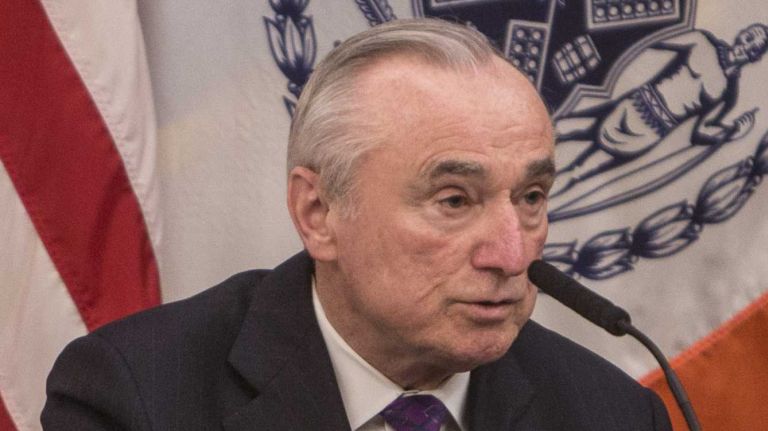
Mayor Bill de Blasio’s rejection of a City Council plan to hire more cops indicates that — at least in his mind — New York City has entered a new, post-crime era.
For the first time in 20 years, public safety is not the first priority of an NYC mayor.
“. . . The fact is that, thank God, the NYPD is achieving what it is achieving with the resources it has now,” de Blasio said last week, explaining why he was not hiring the additional 1,000 officers council members have proposed in City Hall’s annual public safety waltz.
While the mayor said the city doesn’t need the additional cops, crime remains on the minds of many New Yorkers. One of them is Public Advocate Letitia James.
James, one of the more strident voices opposing former Commissioner Ray Kelly’s overuse of stop-and-frisk, now wants more police. “The New York Times and the mayor have not taken into consideration the crime increases in the outer boroughs and in city housing projects, where crime is up 31 percent,” she said last week.
De Blasio’s priorities also reflect a 180-degree turn from those of NYPD Commissioner Bill Bratton’s first boss, Rudy Giuliani. Giuliani spent most of his time — and lots of city money — on reducing crime, which seemed out of control when he took office. He brought in Bratton as police commissioner, who nearly halved the annual 2,000-plus homicides under Giuliani’s predecessor, David Dinkins.
Then, the police department was at the center of New York City’s universe. So was Bratton, who received so much attention that Giuliani fired him after just two years on the job.
Returning as police commissioner after 20 years, Bratton now finds himself in a different position than in 1994. He seems aware that some people in de Blasio’s administration don’t like his aggressive policing. De Blasio ran for mayor on a platform of reining in police abuses. At times, Bratton appears to get caught between his police instincts and his desire to bring his words and deeds in line with those of City Hall.
When the debate over hiring began, Bratton said no commissioner would decline more officers. He soon altered that, saying the 34,000-officer force — 6,000 fewer than under Giuliani — was enough to do the job.
Similarly, he appears to be moderating his more aggressive policies. Earlier this year, he brought back as a consultant George Kelling, one of the authors of the “Broken Windows” theory, which holds that if minor crimes are not addressed, major crimes will follow. After Kelling toured the subways, Bratton promised a crackdown on subway panhandlers and acrobatic dancers. Since then, Bratton has toned down his rhetoric. Now, he says, the dancers could perform in “designated spaces,” although not in subway cars.
Meanwhile, he finds himself in an increasingly ambivalent position as de Blasio supporters continue to criticize the police for past actions.
A group of mothers whose sons were killed by police over the past two decades wants the feds and the NYPD’s inspector general to investigate what they say is a pattern of excessive force against young blacks and Latinos. But Bratton has said he’s “comfortable that all of those cases are exhaustively investigated by us, by the appropriate district attorneys’ offices.”
This time around, Bratton also seems less hands-on than in his previous tenure as commissioner. He recently traveled to Florida, attended the White House correspondents’ dinner in Washington and winged off to Israel with his counterterrorism chief, John Miller.
“There doesn’t seem to be the same fire,” says a former NYPD official, who spoke on condition of anonymity in addressing Bratton’s tenure. “He’s no longer inventing something that’s never been done before. Time has proved that his methods work. There may not be the same drive to succeed. Now he’s at the legacy stage.”
































